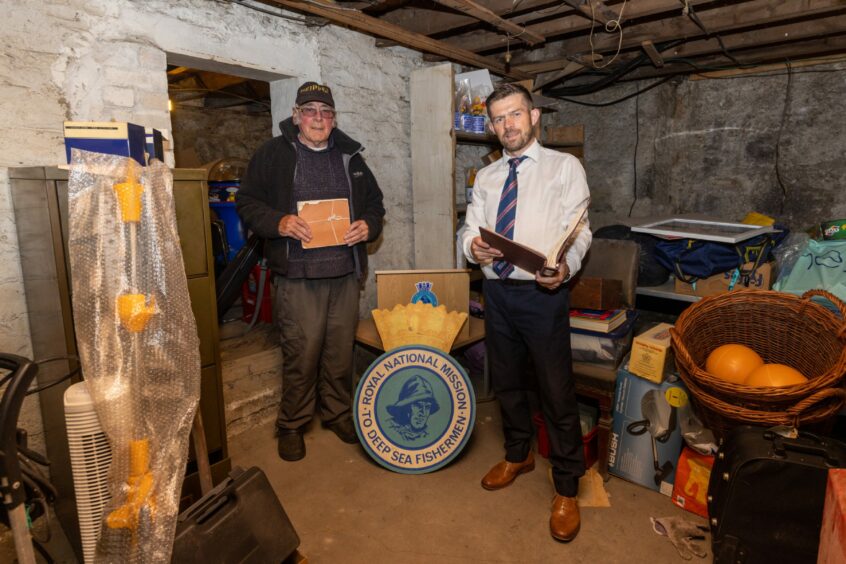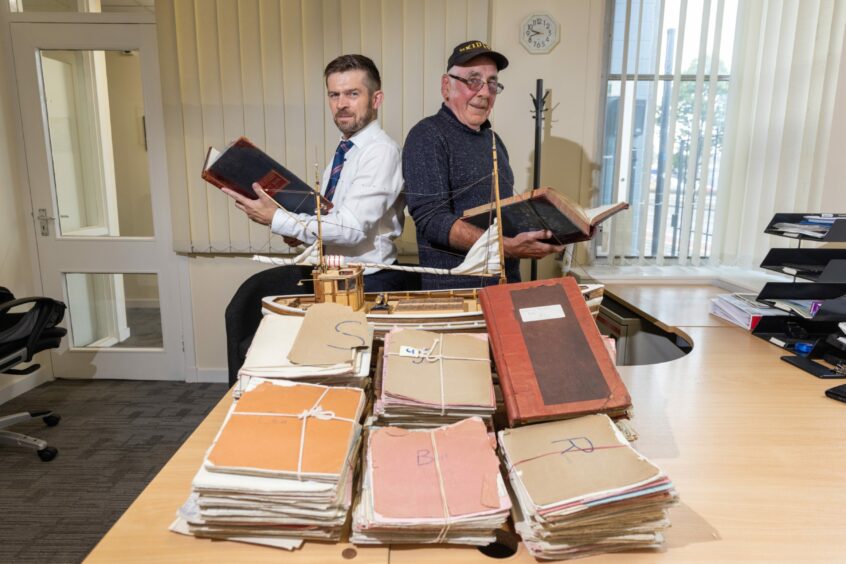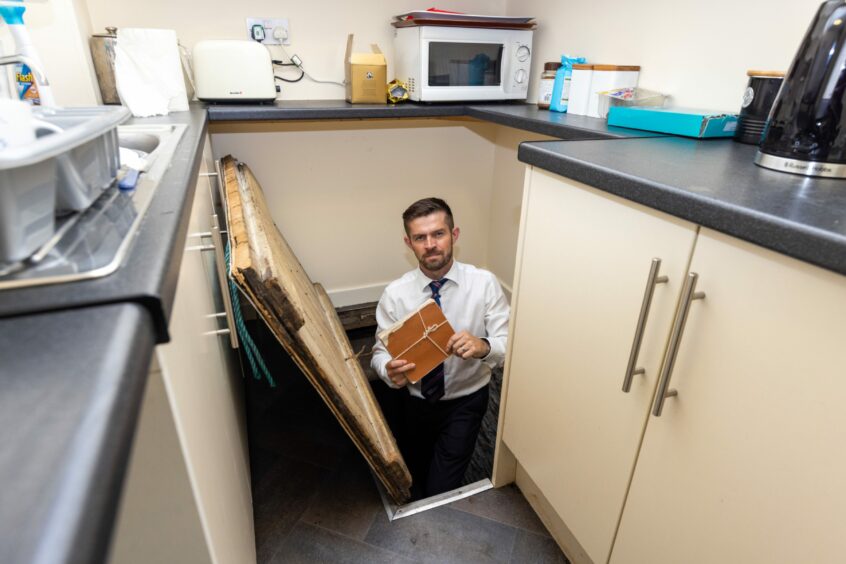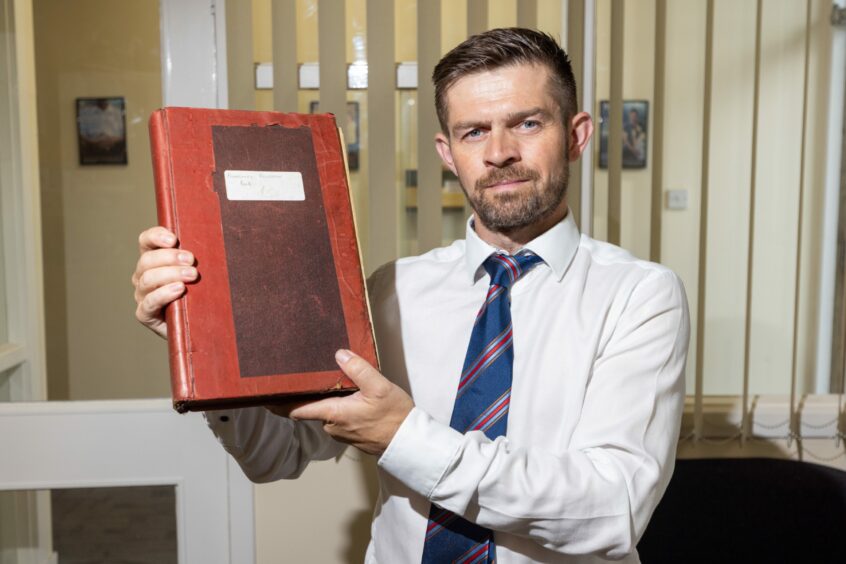The handwritten work records of more than 7,000 trawlermen from the 1950s to the 1980s have been handed over to Aberdeen City Council’s archives.
Cards outlining the name of the trawlerman, his address, national insurance number and details of any marks against his name were found underneath the offices of the Fishermen’s Mission in Aberdeen some four years ago.
After years of work, hampered by Covid, to have them officially accepted into an archive – they will soon have a new home in the city.
Boxes of archives were in a damp basement
Kenny Brandie, the Fishermen’s Mission area officer for Peterhead and Aberdeen, found the boxes in a damp and “foosty” basement, and realised their value to the city’s history.
He said: “When I took on the job and went down into the cellar I saw the books and cards in a damp and forlorn state.
“These were the records of the Aberdeen Trawler Scheme, which was a pool of men who worked on the trawler boats.
“A lot of these guys were just off the street and this was the way they registered to go out to sea.
“These are really important records. Not only are they of special interest – they are vital to the history of a group of workers who have all but disappeared from Aberdeen.”
Mr Brandie explained the Aberdeen City Council archivist took an interest in the documents, describing them as a “missing piece of the puzzle”.
The ‘big book’
Mr Brandie continued: “It is the only historical record that exists of what it was to be a trawlerman in Aberdeen.”
Part of the collection includes a “big book” of every trawler that worked out of Aberdeen.
“Every boat is meticulously recorded between 1956 and 1989. The very last entry has not even been finished. It seems the book finished as quickly as the industry this city was built on.”
Mr Brandie said there are no trawlers that work out of Aberdeen today, and only a “handful of small creel boats”.
Rab Youngman, who set up Aberdeen Ex Trawlermen Facebook page, was very interested in the documents.
‘These books are the Holy Grail’
He said: “These books are the Holy Grail of our industry. We knew they existed and they hold very important information about the trawling industry.
“For example when we were arguing for compensation for workers – these cards held the information we needed.”
“They even record some of the drunken escapades of the trawlermen – the stuff of folklore.
“We think they were in the cellar since the 1990s.
“In telling the history of the trawlermen the ships are only the pens to tell the story of the fisherman, and the women and communities left at home.”
Mr Youngman said the cards signaled social change in the industry as they mark the first time the industry began to be regulated.
Prior to that people were taken from the streets onto boats and “no one really knew who was on a boat”.
“In 1955 when the register was set up people said ‘enough was enough’, they needed to know who was on a boat, and who they were working alongside.”
Mr Youngman said the cards will need to be transcribed, and in future he will be looking for help to do the task.
He said: “The cards are organised by the number you were given when you got your first card. They are not alphabetical.
“Being taken into the archive is great news as the cards will be catalogued, indexed and cleaned. People with an interest will then be able to have access the the record.”
An Aberdeen City Council spokesman said: “We took possession of boxes of records from the Fishermen’s Mission earlier today. These provide a fascinating insight into this aspect of the city’s history and the men who worked on the trawlers. The collection will be catalogued in due course and made available to the public at our building on Dunbar Street, Old Aberdeen.




Conversation